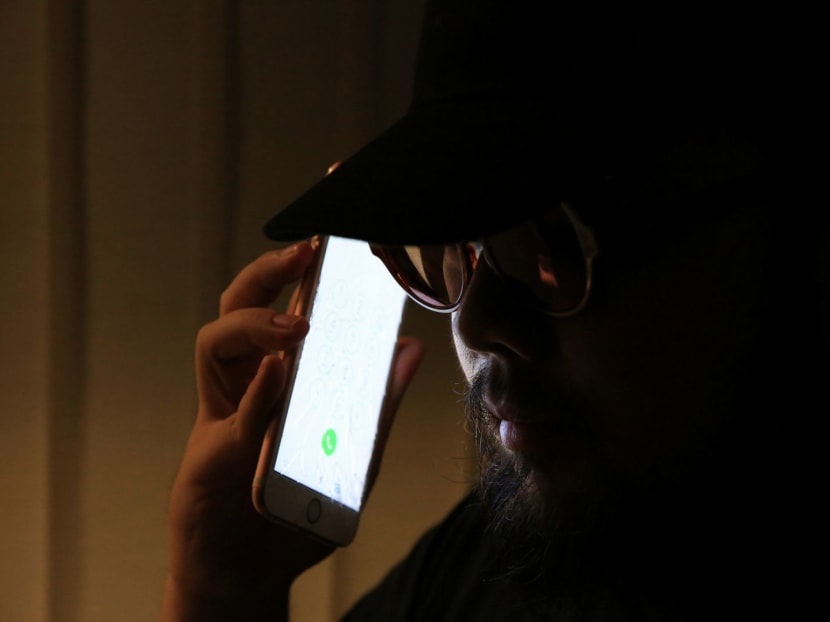Woman lost S$1m to ‘good friend’, another duped of S$3k
SINGAPORE — One woman shelled out around S$1 million to help a “good friend” who claimed he was detained by the Malaysian authorities, while another used S$3,000 to help someone she met on a dating app resolve a work problem.

"Grace" got a call from a friend - whom she got close through Facebook - saying that he was detained at a Malaysian airport over suspected money laundering and customs-related offences, because he was found to be carrying around US$2 million (S$2.7 million) in cash. She was asked to help him raise funds. TODAY file photo
SINGAPORE — One woman shelled out around S$1 million to help a “good friend” who claimed he was detained by the Malaysian authorities, while another used S$3,000 to help someone she met on a dating app resolve a work problem.
Both women never got their money back, nor did they hear from the men they helped after that.
These two cases are part of the rising number of Internet love scams in Singapore, an area of concern highlighted by the police yesterday when they released the mid-year crime statistics. For the first six months of this year, 349 of such cases were reported, a 26 per cent increase from the same period last year.
In the first case, Grace (not her real name), a 45-year-old businesswoman and Singapore permanent resident, met a Canadian national called “Lee” through a mutual friend around September last year.
They became close friends over Facebook and met a few more times when he was in Singapore. Lee told her that he planned to emigrate here.
Then some time early this year, he called her to say he was detained at a Malaysian airport over suspected money laundering and customs-related offences, because he was found to be carrying around US$2 million (S$2.7 million) in cash.
He claimed that the money was for buying a house in Singapore.
He also told her he had asked a friend who works in the United Nations (UN) to help him. That friend contacted Grace and said that they would need US$250,000 from her to get Lee released. When she said she did not have such a sum, she was told to try to raise money.
Grace, a divorcee with two children, was also told that Lee needed two UN-issued certificates, to prove that the cash he had was real and he was not laundering any money. Each certificate would cost around US$200,000. Lee gave Grace what was supposedly his Canadian bank account details, and asked her to log in to help pay for the certificates.
Between February and May, Grace made close to 10 trips to Kuala Lumpur and Johor Baru in Malaysia to sort out Lee’s predicament and help get the documents. She later discovered that she had been logging on to a “duplicate” website of the bank based on Lee’s information. By then, she had been cheated of more than S$1 million, and never got her money back from Lee or his contact.
In the second case, Jane (not her real name) got to know a man through dating app Paktor in May. He claimed to be a geologist at an oil and gas company, and that he was based in the United States.
The secretary, who is in her mid-40s, told TODAY that he chatted her up a day after she started using the app. One day, he informed her that “an accident” happened while carrying out a work project in Brunei and he needed to raise money to fix the problem, but he was short of RM24,000 (about S$7,700).
Having been a victim of a scam around 10 years ago, Jane was thinking at the time that if it was a con job, he would have asked for more money.
She told him she had just S$3,000, and he asked her to put it into a POSB account belonging to one of his Malaysian business partners.
A week later, he tried to ask her for more money and his tone “became more desperate”. She also found out that he was lying when some photos he had sent her of himself in Brunei were ripped off a tourism site. By then, she had lodged a police report against him. ALFRED CHUA






